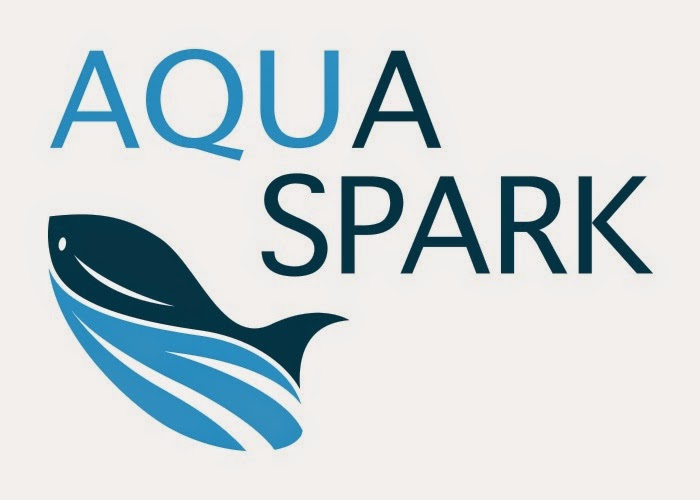For better or worse – often for worse – aquaculture is the fastest-growing animal-based food industry, the Guardian says.
Half the seafood eaten in the US is farmed, and most of that is imported. Yet it’s not unusual for fish farms to pollute local waters, damage coastal habitat and deplete the oceans of feeder fish. Or, as the Guardian reported last year, exploit slave labour.
Aqua-Spark, a global investment fund based in the Netherlands, aims to do better. The fund, which focuses exclusively on aquaculture, recently made its first two investments, putting US$2m into a biotech company called Calysta, whose technology makes fish feed out of methane gas, and another US$2m into Chicoa Fish Farm, a tilapia-farming startup in Mozambique that intends to build up aquaculture in sub-Saharan Africa.
These small steps won’t have much impact on the global aquaculture industry, which was valued at US$135bn in 2012 by IBIS World. But Aqua-Spark isn’t alone. Brands and retailers, including Unilever and Walmart, as well as NGOs such as the World Wildlife Fund, are all working to limit the environmental impacts of fish farming.
“There aren’t a lot of perfect models out there,” says Amy Novogratz, who founded Aqua-Spark with her husband, Mike Velings.
“If we make investment available to the ‘best in class’ companies, they will help set a bar for sustainability. And if we can help them succeed, others will follow.”
Ms Novogratz and Mr Velings met in 2010 aboard a National Geographic ship in the Galapagos Island, part of a five-day mini TED conference called Mission Blue. She had been director of the TED prize for nearly a decade (and is also the younger sister of Jacqueline Novogratz, founder of Acumen, an nonprofit impact investing fund). He was already a lifelong entrepreneur. They were surrounded by scientists who argued that protecting the oceans meant changing the way we catch and grow fish.
In fact, Dr Sylvia Earle, the celebrated oceanographer who helped organize the cruise, asked that no fish be served on board.
“Aquaculture was still a dirty word,” Ms Novogratz recalled.
“But that was changing.”
Afterwards, Ms Novogratz and Mr Velings began to investigate aquaculture and saw quickly that the industry was “lacking investment”, he said. “You need a lot of knowledge and it’s quite capital intensive. It gets really difficult really quickly.”
Sensing an opportunity, Ms Novogratz and Mr Velings launched Aqua-Spark. They raised about 8.3m Euros, with about 2.5m Euros coming from the Doen Foundation, the investing arm the Dutch Postcode Lottery. Most of the money has come from high-net-worth individuals. Their ambitious goal is to raise 250m to 300m Euros over the next 10 years.
Read more HERE.
Half the seafood eaten in the US is farmed, and most of that is imported. Yet it’s not unusual for fish farms to pollute local waters, damage coastal habitat and deplete the oceans of feeder fish. Or, as the Guardian reported last year, exploit slave labour.
Aqua-Spark, a global investment fund based in the Netherlands, aims to do better. The fund, which focuses exclusively on aquaculture, recently made its first two investments, putting US$2m into a biotech company called Calysta, whose technology makes fish feed out of methane gas, and another US$2m into Chicoa Fish Farm, a tilapia-farming startup in Mozambique that intends to build up aquaculture in sub-Saharan Africa.
These small steps won’t have much impact on the global aquaculture industry, which was valued at US$135bn in 2012 by IBIS World. But Aqua-Spark isn’t alone. Brands and retailers, including Unilever and Walmart, as well as NGOs such as the World Wildlife Fund, are all working to limit the environmental impacts of fish farming.
“There aren’t a lot of perfect models out there,” says Amy Novogratz, who founded Aqua-Spark with her husband, Mike Velings.
“If we make investment available to the ‘best in class’ companies, they will help set a bar for sustainability. And if we can help them succeed, others will follow.”
Ms Novogratz and Mr Velings met in 2010 aboard a National Geographic ship in the Galapagos Island, part of a five-day mini TED conference called Mission Blue. She had been director of the TED prize for nearly a decade (and is also the younger sister of Jacqueline Novogratz, founder of Acumen, an nonprofit impact investing fund). He was already a lifelong entrepreneur. They were surrounded by scientists who argued that protecting the oceans meant changing the way we catch and grow fish.
In fact, Dr Sylvia Earle, the celebrated oceanographer who helped organize the cruise, asked that no fish be served on board.
“Aquaculture was still a dirty word,” Ms Novogratz recalled.
“But that was changing.”
Afterwards, Ms Novogratz and Mr Velings began to investigate aquaculture and saw quickly that the industry was “lacking investment”, he said. “You need a lot of knowledge and it’s quite capital intensive. It gets really difficult really quickly.”
Sensing an opportunity, Ms Novogratz and Mr Velings launched Aqua-Spark. They raised about 8.3m Euros, with about 2.5m Euros coming from the Doen Foundation, the investing arm the Dutch Postcode Lottery. Most of the money has come from high-net-worth individuals. Their ambitious goal is to raise 250m to 300m Euros over the next 10 years.
Read more HERE.
The Aquaculturists
This blog is maintained by The Aquaculturists staff and is supported by the
magazine International Aquafeed which is published by Perendale Publishers Ltd
For additional daily news from aquaculture around the world: aquaculture-news


No comments:
Post a Comment